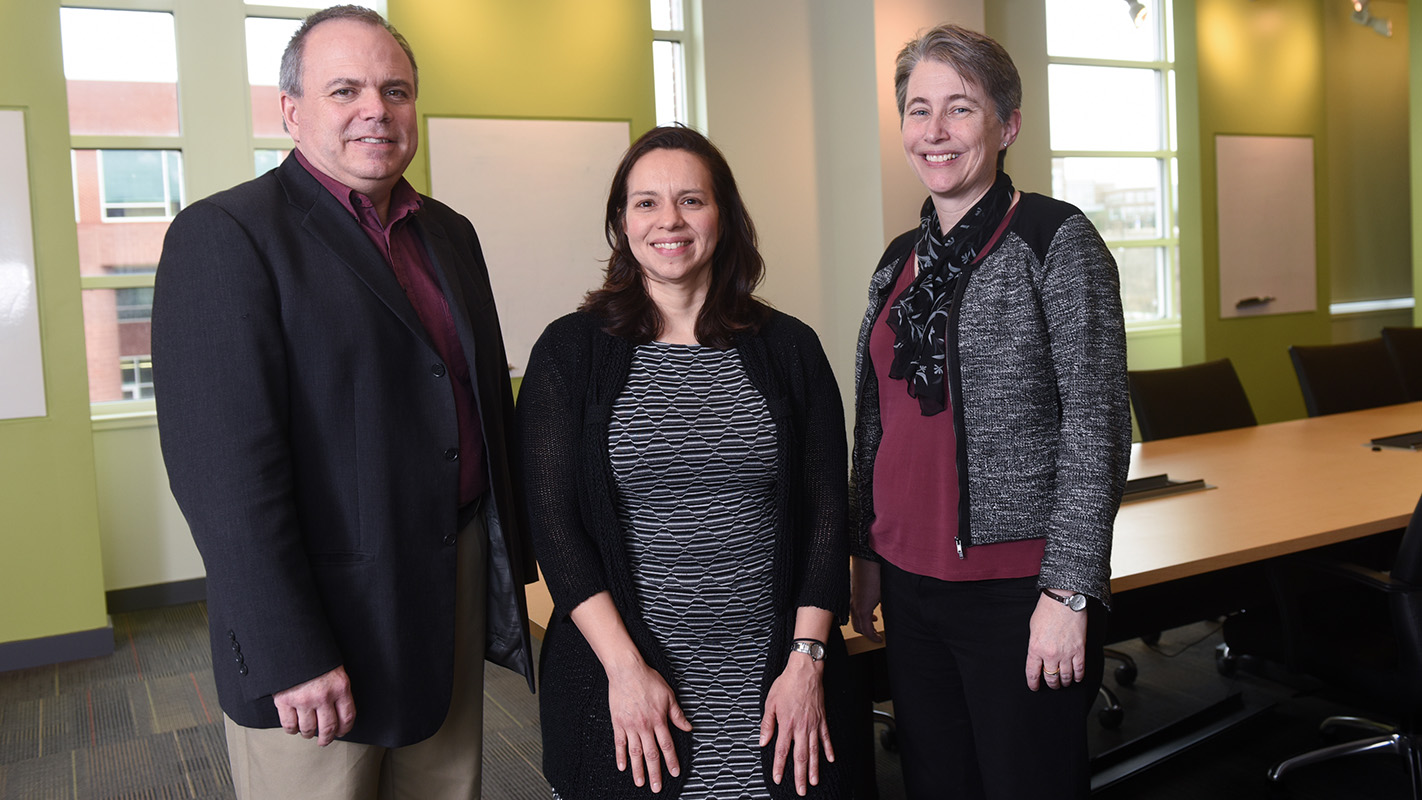
Data-Driven Science
Our models, tools, and analytics help researchers and industry experts use their data to solve problems.
About
Cluster Type
Cluster Coordinator
Cluster Colleges
NC State expands upon its rich history of analytics research and corporate connections with the formation of the Data Driven Science cluster. Three senior faculty members were hired into the cluster as part of this effort from the departments of Computer Science, Statistics and Mathematics. While these candidates reside in their home departments, they broadly support NC State’s national leadership in data science.
Open PositionsImpact
This cluster is part of the rich ecosystem of data science at NC State. NC State is the first university to offer a master’s program in analytics, focusing on business intelligence, through the Institute for Advanced Analytics. The university leads an innovative collaboration with the intelligence community, the Laboratory for Analytic Sciences, that to date has sponsored $75M in research to develop new analytic technology and analysis tradecraft. Two major new developments have emerged from the cluster. NC State’s Data Science Academy is broadening participation through education, research enablement, and consulting to create a university where “data science is for everyone.” The cluster also has been an integral part of establishing the joint graduate research degree, MS in Foundations of Data Science, to be launched in Fall 2023.
History
The data available to improve scientific and policy decisions is increasing exponentially. Not only have temporal, spatial and spectral resolutions of traditional sensors increased dramatically, but new sensing paradigms have been created. The internet, health care records, power meters and even smartphones have become sensors that provide massive data sources for making decisions in sectors as varied as business, health care, national security and energy. Data-driven science relies on dependable data. The data lifecycle (see below) illustrates the need for attention to data as it is collected, managed, analyzed, and communicated. At each stage of this lifecycle, data science also addresses issues of accessibility, transparency, privacy and ethics.
Nearly every economic sector is struggling with growing data volume and variety, resulting in “big data” becoming an increasingly important research field. Both IBISWorld and MGI predict this market will continue to grow at a significant pace, with a more than $200 billion potential market value in health care alone. Predictions include the need for close to 200,000 more analytics and manager positions industry wide.





